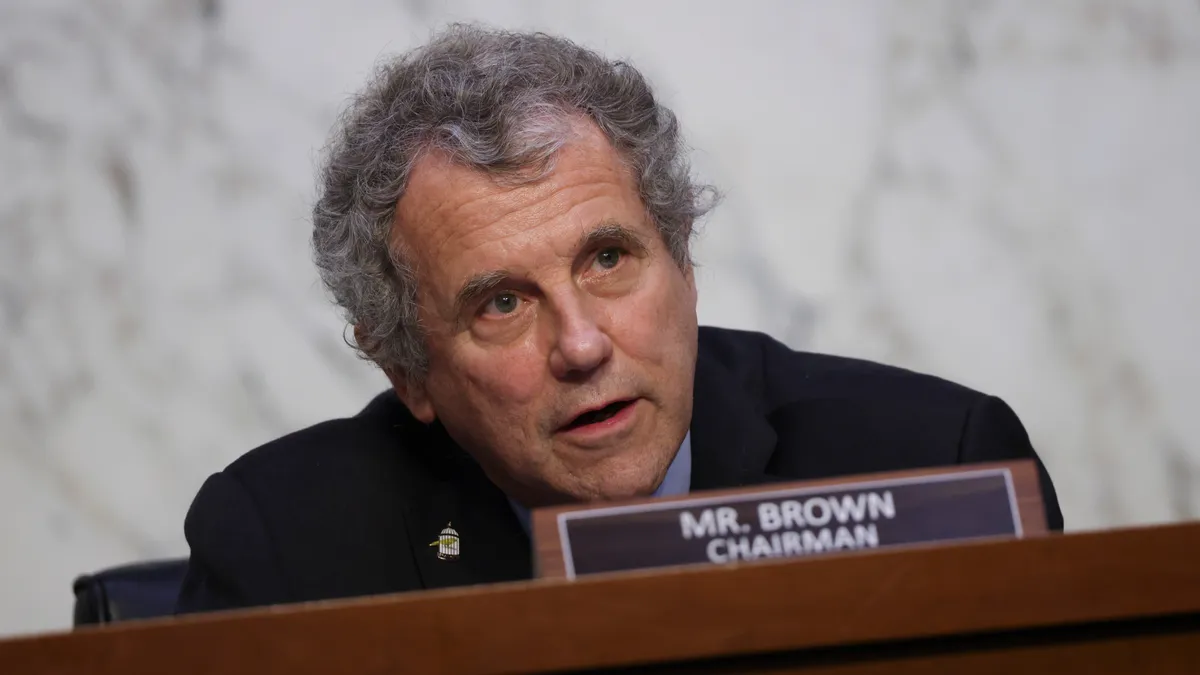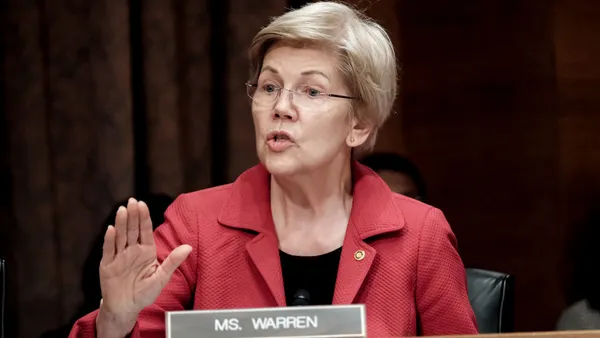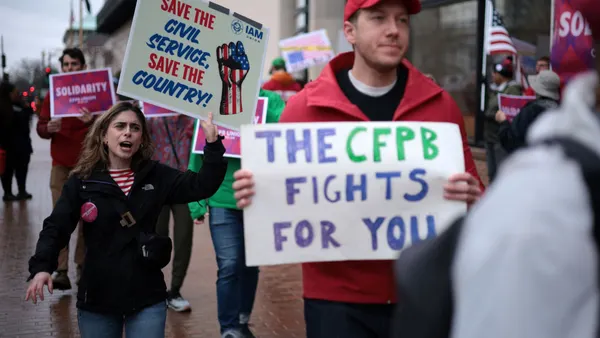Senate Banking Committee Chairman Sherrod Brown, D-OH, urged the Office of the Comptroller of the Currency to hold public meetings, when a community requests them, to evaluate the impact of bank branch closures on low- to moderate-income communities, according to a letter last week to Acting Comptroller Michael Hsu.
The letter comes in the wake of a petition submitted by the nonprofit Fair Housing Center in Toledo, Ohio, regarding the proposed closure of a Fifth Third branch in its Englewood neighborhood.
The Fair Housing Center on Feb. 16 asserted that local residents would be denied access to the financial services and credit opportunities they need when Fifth Third leaves.
"The neighborhood where this bank branch is located is an area that was historically redlined and has remained segregated by race due to the lasting effects of those policies," the group wrote, according to American Banker.
The OCC responded to the letter Feb. 23, saying it would consider the group's comments in its subsequent Community Reinvestment Act evaluation of Fifth Third but did not say it would hold a public meeting.
"Banks serve a unique role in the functioning of our financial system and economy," Brown wrote Thursday. "That is why they must serve the needs of all members of their community, and all communities across the country."
President Joe Biden issued an executive order in 2021, demanding “more robust scrutiny” of bank mergers. While the order aimed somewhat to limit the impact of bank mergers on LMI communities, individual branch closures may be a more granular focus than a national policy can support.
Brown in April 2022 urged Hsu and Federal Reserve Chair Jerome Powell to review and reconsider the agencies’ approach to big bank mergers — and indeed, the Fed in October, proposed a change in policy.
“Troublingly, branch closures are usually clustered in low- and moderate-income communities,” Brown said in his April 2022 letter. “That’s why these closures often push consumers out of the banking system and, toward high-fee, predatory non-bank financial companies — like check cashers and payday lenders — that appear where branches used to be.”
Jason Almonte, the OCC's director for large bank licensing, told American Banker that banks do not need the OCC’s approval on the closing of an individual branch. That’s a business decision, Almonte said.
Fifth Third regularly evaluates its branch network and keeps in mind consumer preferences, a bank spokesperson told the publication.
Fifth Third will maintain an ATM at the site of the closed Toledo branch, American Banker reported.
"Although we have one location closing in Toledo, we have two additional financial centers within the same zip code to serve customers,” the spokesperson said in an email. “Our team has been welcoming and working with those customers as they transition."
A provision of the federal law states that when an interstate bank proposes a branch shutdown in a low- or moderate-income area, the notice to customers announcing the closure should carry the mailing address of the federal banking agency and a statement saying customers could mail the agency about the closing.
Fifth Third’s branch closure notice did not indicate that people could submit comments to the OCC, George Thomas, CEO and general counsel of the Fair Housing Center, told American Banker.
Fifth Third said in January it planned to shut down 23 branches by the end of 2023. Eight of those are in Ohio, according to an OCC filing.












